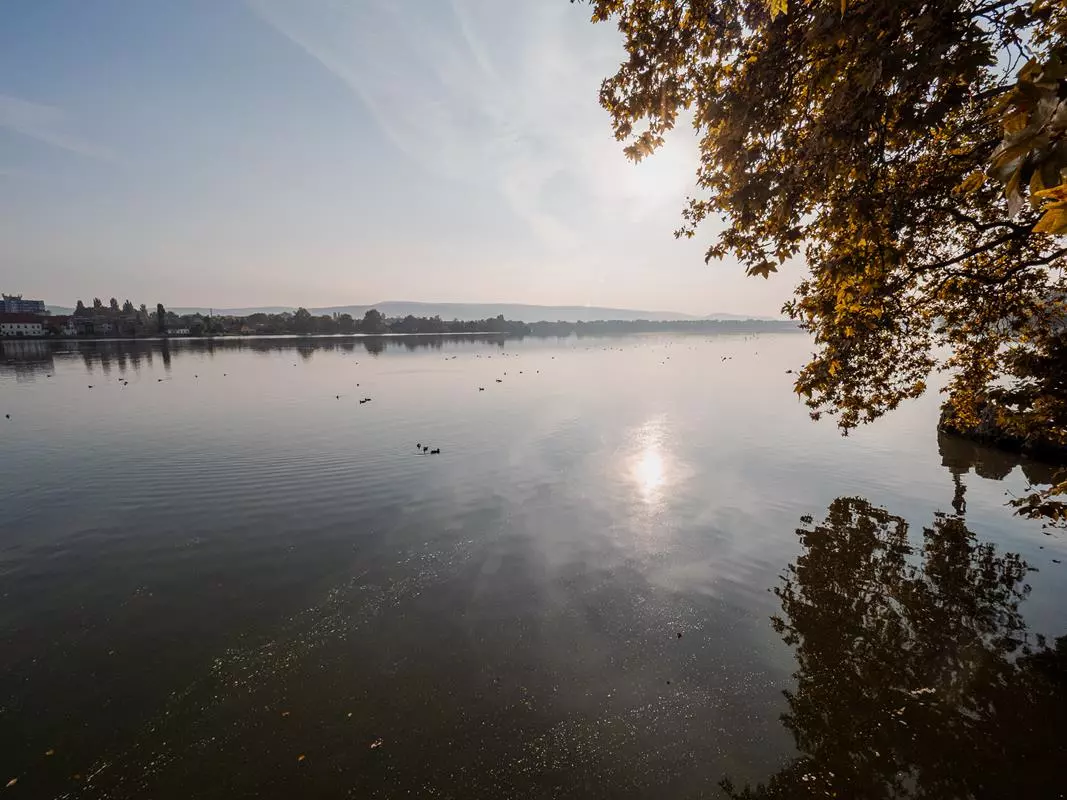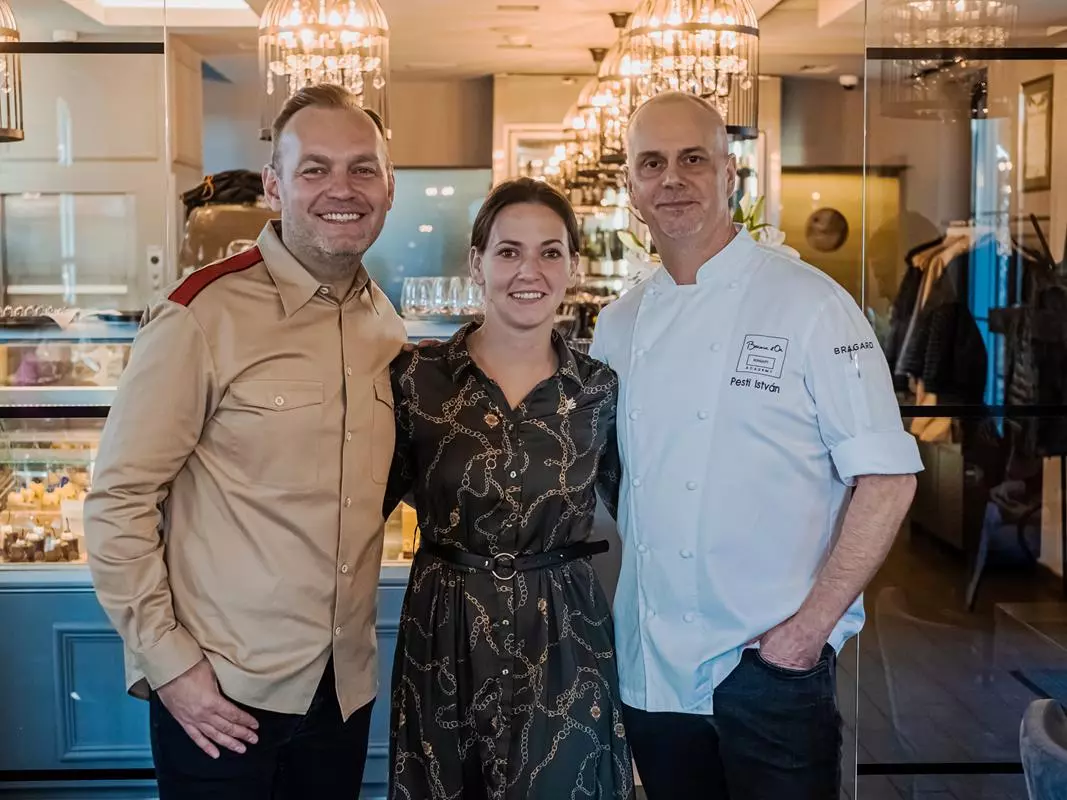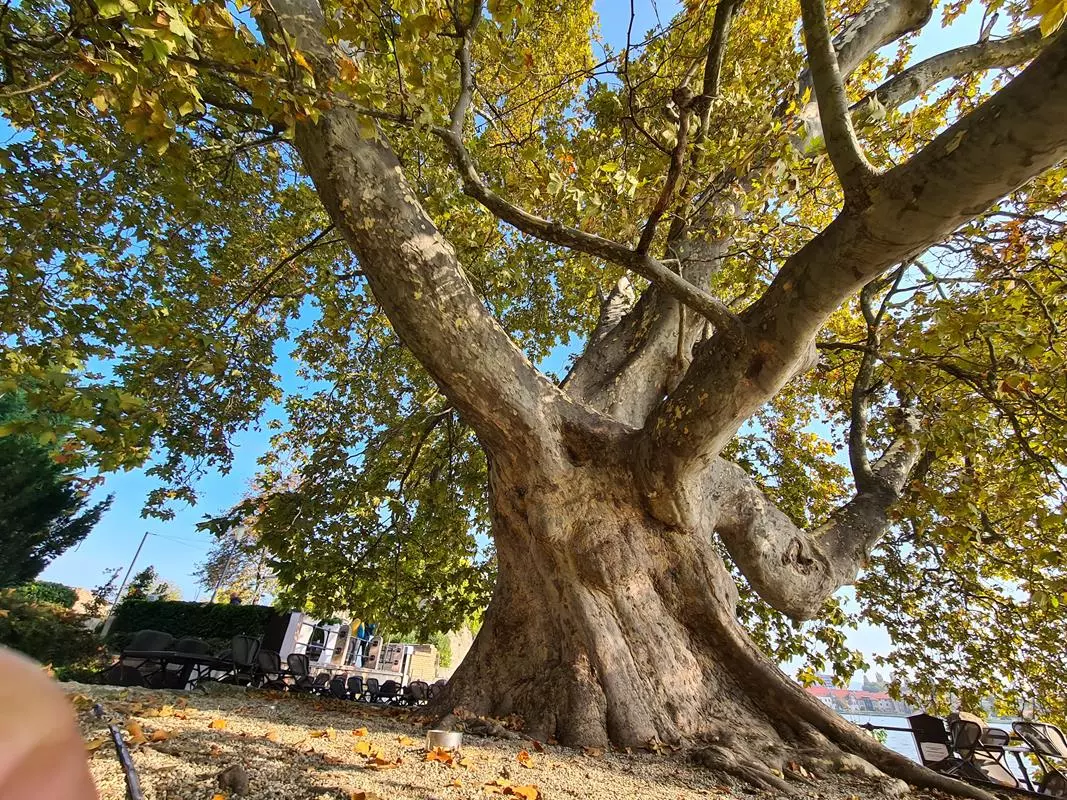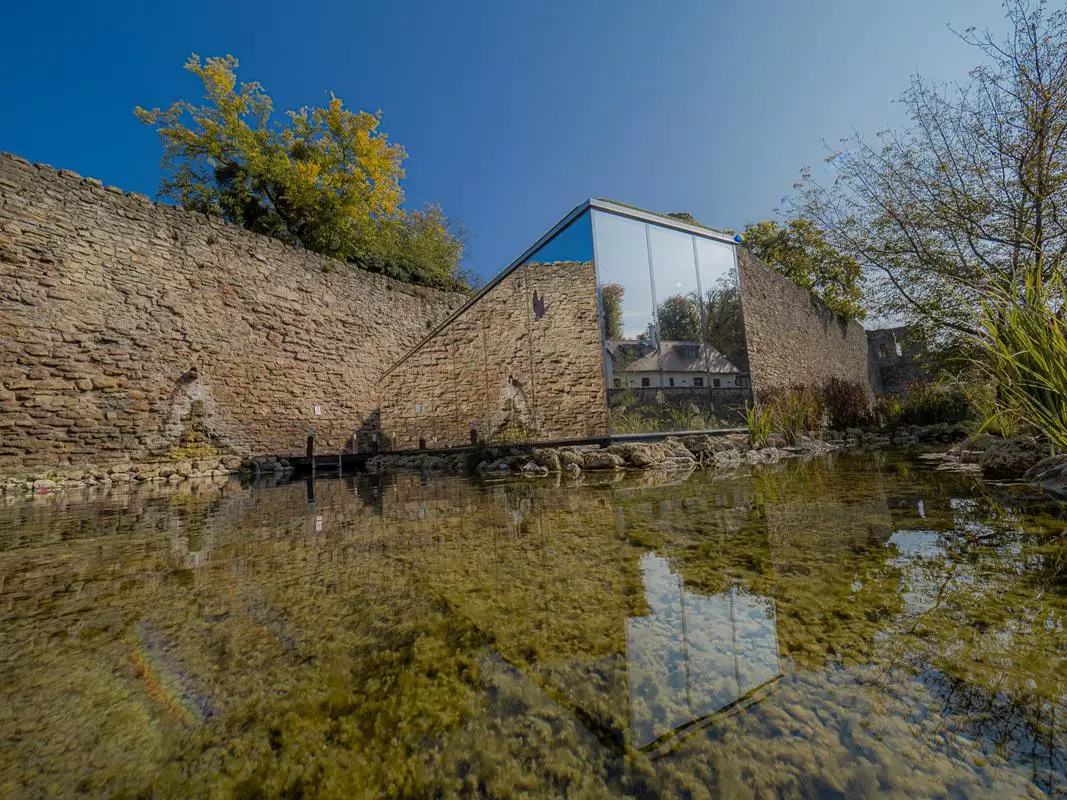The Tata Bird Guide is published: collaboration, spectacular graphics, more than 250 species of birds

In an exemplary project, the conservationists of Tata and the representatives of Platán joined forces to create the Bird Guide. It collects more than two hundred and fifty species of birds living around the Tata lakes in a single publication. The book is available in English as well as Hungarian.
Tata is a town of just 23,000, but its reputation is bigger than that. The nickname ‘City of Waters’ is well known, but thanks to the Wild Goose Festival, it has also become a favourite destination for many tourists in addition to birdwatchers. Not far from the capital, it is easily accessible, and history lovers will also find something to see here thanks to the Esterházy family. And if all that wasn’t enough, there is a 200-year-old plane tree on the shore of the Öreg Lake (Old Lake). On top of that, next to it, the Platán empire with some of the best catering in rural Hungary can be found.
Tata: the oasis of waterfowl
Hungary is rich in lakes, but Tata is an exceptional place for birdwatchers. Here, the natural and built environment intertwine, and animals can be seen in a unique way in Europe, almost up close in the heart of the town.
Common shelduck, greater white-fronted goose, European nightjar, water rail, spotted redshank, collared flycatcher, European greenfinch, Eurasian nuthatch, common kingfisher and short-toed treecreeper. The Old Lake of Tata and its surroundings have become famous in Europe primarily as a gathering place for wild geese. However, the area is also a resting and nesting place for many protected and highly protected bird species.
From the end of September to mid-March, wild geese from Scandinavia and Siberia, via the Netherlands and Germany, take over Old Lake and its surroundings. It’s worth visiting the ‘city of waters’ for the spectacular views alone, but if you take more time to explore the area, you can see more than 200 species of birds.

The municipality was awarded the status of Ramsar City a few years ago: for decades, it has been listed as a Ramsar site on one of the most important international lists of wetlands and waterfowl protection. Tata is also part of the EU’s ecological network, Natura 2000, which protects biodiversity.
Bird guide: book, experience, exhibition
The creators of the Bird Guide are Péter Csonka and Szabolcs Kókay. The two nature lovers have been friends for decades and have long been planning to create a guide to the bird species living in and around Tata.
Péter Csonka is a bird and nature conservationist, head of the Duna-Ipoly National Park Directorate (Duna-Ipoly Nemzeti Park Igazgatóság, DINPI), president of the county organisation of the Hungarian Ornithological and Nature Conservation Association (Magyar Madártani és Természetvédelmi Egyesület). He has been involved in bird photography since 1999 and is also the founder of the Hundred Valley Nature Conservation Association (Száz Völgy Természetvédelmi Egyesület) and the Tata Wild Goose Festival (Tatai Vadlúd Sokadalom). In 2017, he was awarded the Hungarian Silver Cross of Merit (Magyar Ezüst Érdemkereszt) for his work, and in 2022, he was awarded the Silver Medal for the City of Tata.
Szabolcs Kókay is one of the most important Hungarian nature painters and illustrators, a self-taught artist. Szabolcs Kókay is one of the most important Hungarian nature painters and illustrators, a self-taught artist. He has been featured in the Society of Wildlife Artists exhibition in London and in the Leigh Yawkey Woodson Art Museum’s “Birds in Art” exhibition in the US. His work has been awarded several times in the British Birds, Birdwatch Artist of the Year and Spanish Sociedad Gaditana De Historia Natural illustrator competitions. He is the illustrator of several English language textbooks.
“Spending time in nature has an impact on our character, because we are exposed to different impulses. We can smell the scents, see the variety of butterflies, the texture of the bark and rocks of the trees, or the way the air moves across the meadow. It is a proven fact that these experiences make us more balanced,”
says Péter Csonka.
“It’s worth using this Bird Guide with open eyes and ears to experience the wonder that nature has to offer. In nature, we need to open all our senses and let go of any thoughts that might hinder this intimate experience. In nature, we need to purify ourselves, to recharge. Nature walks and birdwatching are not only a great way to build community, but it is also scientifically proven that they have a beneficial effect on our health and the balance of our mind and spirit, which is why it is important to pass on our love of nature to our children and to keep it alive,”
he adds. The Bird Guide provides detailed information on exactly where, when and what birds to look for and observe in the area.
An exhibition of Szabolcs Kókay’s illustrations will open on 14 October at the Esterházy Castle to coincide with the publication of the Bird Guide. The illustrations are remarkable because they show small details of the birds and their environment – their movements, colours and lights – that photographs cannot reproduce.
The exhibition is open from Tuesday to Sunday from 10.00 AM to 6.00 PM for a month.
Platán has taken up the initiative
The book could not have been published without adequate funding, but fortunately the authors found a loyal partner. For Platán, which has been operating in a building of the former Esterházy estate in Tata for 13 years and has recently been renovated, an old dream has come true with a book about the wonders of the surrounding nature.
Tata is a very special tourist destination, not only because of its historical and natural values, but also because of its unique gastronomic offer, thanks to Platán. The company has put Tata on the gastronomic map of the country from the very beginning with the Platán Bistro on the lakeside. It has recently become one of the region’s top restaurants thanks to its dedicated team and the transformation achieved through the collaboration of Michelin-starred chef István Pesti and interior designer Zoltán Varró.

The result is the Platán Gourmet Restaurant, which has been awarded the Dining Guide’s Best Country Restaurant of the Year award (az Év Legjobb Vidéki Étterme) for the second time this year. Since its opening, Platán has been committed not only to preserving the spiritual heritage of the Esterházy family and the gastronomic traditions of historical Hungary, but also to preserving the natural values of Tata. (For more information about Platán, please visit Platán Gourmet Restaurant and Courtyard on Facebook, Instagram, Platán Bistro on Facebook, Instagram, Platán Tata website.)
Alpár Kató, founder of Daily News Hungary and Helló Magyar, has personally visited Tata last week:
The eponymous tree, which was brought from Versailles by the Esterházy family in 1785 and is now one of the city’s iconic plants, has been taken care of by the Platán team since its inception. The newly published Bird Guide has also been embraced, and two paintings by Szabolcs Kókay can be bid for on the Platán website for a month. The proceeds will be donated to the Tatai Mecénás Public Foundation and the organisers of the Tata Wild Goose Festival, who will also offer free guided tours around Lake Tata.

You can buy the book from Monday, 17 October in the Platán and in the shop of the Esterházy Castle for HUF 5500 (EUR 13.3). Platán will also distribute it free of charge to schools in Tata and to the city library.

Read the Hungarian version of this article on HellóMagyar.
Source: HellóMagyar













